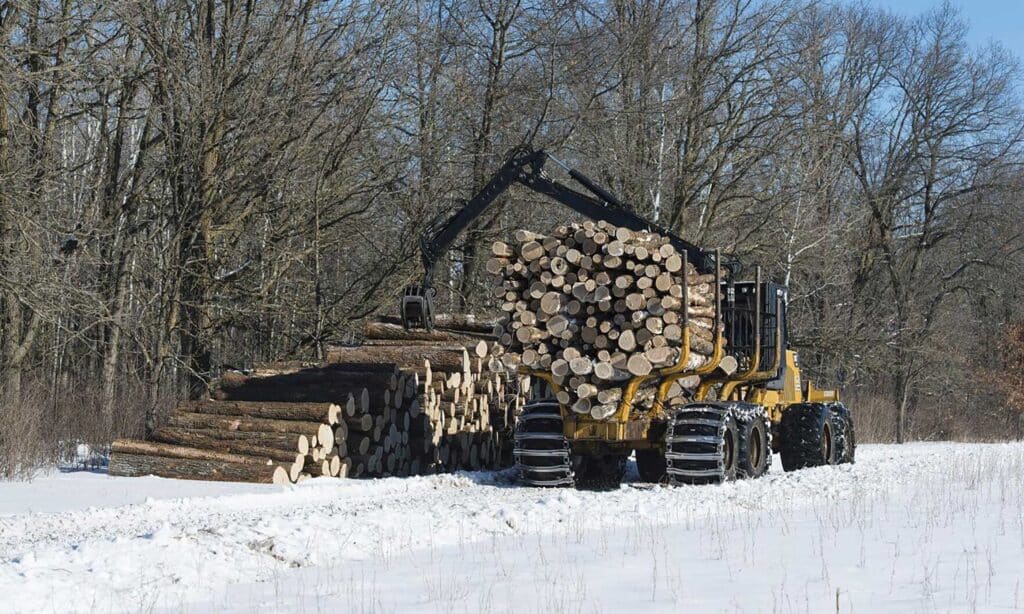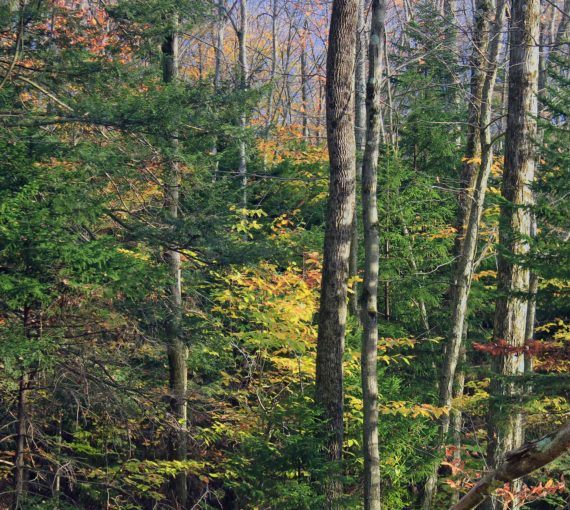Many governmental departments across Canada are failing us when it comes to to fulfilling their duty to the public as watchdogs over corporate interests.

Natural Resources Canada’s annual report fails to assess the cumulative impact of industrial logging on remaining primary and old-growth forests, regeneration failures due to logging infrastructure, decreasing populations of forest-dependent species and the lack of transparent accounting of carbon emissions due to logging practices, Julee Boan and Rachel Plotkin write. Dreamstime photo
These days, many profiteers are simultaneously exacerbating the climate and biodiversity crises while giving the impression that they are best suited to resolve them.
This was evident from most industrial resource-extraction sectors in Canada last year. Public relations machines churned out spin, including “narrative advertising” that’s formatted to look like news. Mining, logging and oil and gas positioned their industries as merely solutions to the challenges we face, downplaying or outright ignoring the ecological impacts they continue to have.
As many of us reel from the high price of a loaf of bread or a two-by-four, maybe we expect this discombobulating spin from corporate interests, and recognize that it is usually cheaper to convince the public that an issue has been resolved than to actually resolve it. But we hold governments to a higher standard, expecting them to fulfil their duty to the public as a watchdog over corporate interests.
Unfortunately, many governmental departments across Canada are failing us.
A case in point: transparent and accurate information about how forests are faring in this country is lacking, despite the fact that each year, Natural Resources Canada (NRCan) issues a report called “The State of Canada’s Forests,” which it claims is “a trusted and authoritative source of comprehensive information on the social, economic and environmental state of Canada’s forests and forest sector.”
A new report by the David Suzuki Foundation, the Natural Resources Defense Council and partners shows that the actual state of the forests is far more complex and worrisome — and the logging industry far less sustainable — than the federal government claims.
In reality, NRCan’s annual report fails to assess the cumulative impact of industrial logging on remaining primary and old-growth forests, regeneration failures due to logging infrastructure, decreasing populations of forest-dependent species such as threatened boreal woodland caribou and the endangered spotted owl and the lack of transparent accounting of carbon emissions due to logging practices.
NRCan also fails to assess and report on the alignment, and/or misalignment, between industrial logging practices and Indigenous rights. There is little doubt that many forests in Canada have been significantly degraded.
At last year’s United Nations Climate Change Conference in Dubai, Canada recommitted to halt and reverse biodiversity loss; Environment and Climate Change Canada (ECCC) is leading the effort. Reversing forest degradation is direly needed to restore wildlife habitat, secure ecological services and mitigate climate change. But Canada has not yet even admitted that forest degradation is actually occurring, nor how it overlaps with logging practices. Reversing forest degradation is about much more than planting trees.
Forests throughout the country have a critical role to play in addressing the climate and biodiversity crises. But the development of smart solutions must be predicated on good information.
NRCan and ECCC must come together and summon the leadership needed to clearly report on the outcome of forest management and then work with provinces to ensure that forests are managed to halt and reverse degradation.
This article was originally published on The Hamilton Spectator, March 4, 2024. Julee Boan is the Canada project partnership manager at the Natural Resources Defense Council. Rachel Plotkin is the boreal project manager at the David Suzuki Foundation.
Related Projects
Always grounded in sound evidence, the David Suzuki Foundation empowers people to take action in their communities on the environmental challenges we collectively face.



